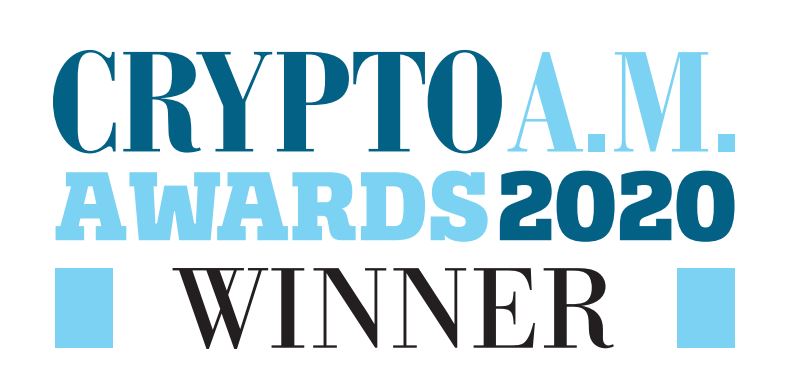What is Decentralized Finance (DeFi)?

Decentralized finance, also known as DeFi, is a fast-growing sector of the cryptocurrency industry. While cryptocurrency coins create a decentralized store of value separate from any government-backed fiat currency, DeFi creates decentralized financial instruments separate from traditional centralized institutions.
Although still small when compared to the global economy, DeFi has seen rapid growth in 2020. In early 2019, there was only $275M of crypto collateral locked in the DeFi economy. By February 2020, that number had grown to $1B, and it has continued to grow impressively throughout the year, hitting $2.5B in early July, $3B by mid July, and $4B on 25 July.
This growth shows that there is significant interest in DeFi from within the crypto community, but it’s still a small enough sector that many outside the industry may not have heard of DeFi yet. So let’s look at what DeFi is, and why it’s so exciting.
DeFi: What and why?
In order to be considered DeFi, a financial platform must have one or more decentralized function. These often take the form of using distributed ledger technology (DLT) rather than storing records in a centralized fashion; decentralized governance of the platform in the hands of the tokenholders rather than a ruling board; the use of decentralized information feeds and algorithms to determine things such as interest rates and currency values.
Most DeFi platforms take the form of decentralized apps, known as dapps. These dapps use a series of smart contracts to automate financial transactions, making them faster, more efficient, and often more affordable than their centralized counterparts. Likewise, because dapps are governed by computer code, which is inherently neutral, there is no issue of bias.
Automation allows for some really interesting financial instruments not seen in the traditional, centralized financial sector. One such example is “flash loans”, a unique form of loan that must be taken out and paid back within a single transaction. These loans allow a user to borrow funds, convert or trade them across different platforms, and then pay back the amount borrowed, all in moments. Clever traders can use this to take advantage of market fluctuations and make a fast profit.
Much of the interest around DeFi has to do with giving people more control over their money, and more interesting ways to use it. The centralized financial industry has long excluded people of modest means, reserving the best instruments for those with more funds, and thus further increasing the wealth gap. Many DeFi projects aim to make investment and trading more accessible, with lower minimum investments and platforms which are easy to use from any smart phone with an internet connection, regardless of geographical location.
Risks of a young industry
DeFi is interesting and exciting, but it’s also risky. While anyone can get involved with DeFi, it’s not advisable to invest heavily in the industry unless you can afford heavy losses. The industry has suffered several high-profile hacks and attacks in 2019 and 2020, resulting in major losses. Take the flash loans we mentioned before — these were used to drain $900K of assets from the DeFi platform bZx in two separate attacks earlier this year.
And just like the ICO boom of 2017-2018, we’re seeing scam projects arise within the DeFi industry. Scammers have been targeting the popular DeFi platform Uniswap, listing fake tokens for sale, using names that suggest that are affiliated with high-profile DeFi apps. Scams like this take advantage of newcomers to the industry who haven’t done enough research and act quickly out of their excitement to be taking part in a financial revolution.
Centralized finance is subject to a number of rules and regulations. This is a double edged sword. Many of these regulations hamper what users can do with their money, but they also provide protection. Regulations create a legal framework for prosecuting anyone who illegally misuses their customers funds, and a framework for restoring lost assets to victims of financial crimes. Unfortunately, just as hackers are able to exploit loopholes in smart contracts to steal funds, traditional financial institutions are adept at working the laws to make as much money as possible from their users, without committing any actual crimes.
In order for DeFi to succeed, the industry will need to self-police, work with legislators to encourage the development of sensible laws that offer a good balance of freedom and consumer protection, and provide good educational resources to help newcomers navigate the financial landscape safely and effectively.
The importance of education
Lack of education has long been a barrier to entry to financial markets. While those who come from money often grow up with access to information about money, and people who can help them make money decisions, those who came from less money and find themselves with extra funds as adults are often at a loss on how best to save, invest, or trade in order to grow their wealth. Financial markets are often intimidating and confusing, which can lead to a variety of bad scenarios: either people get scared away and don’t invest at all; they decide to invest based on their own opinions of companies or instruments; or they get taken in by scam investments and lose their funds.
With education, it’s far easier to make a good decision on how to use your money, based on things like your risk tolerance, the amount of money you have to work with, and your end goals (such as the down payment on a house, or building a retirement nest egg).
DeFi is no different from the centralized financial industry in this regard. Users need access to quality education in order to make smart decisions about their digital assets. This education should be easy to find and easy to understand. It must be presented in a variety of formats in order to accommodate different learning styles. 2020 is looking to be a big year for DeFi, but it still has a long way to go. Now is a good time to start learning about this exciting new industry, so that you can follow along with its growth.
On Yavin is the Founder and CEO of Cointelligence and the co-author of a new book, The Cointelligence Guide to Decentralized Finance (DeFi). Since 2017, he has dedicated his life to cryptocurrency and the blockchain. On works tirelessly to build the cryptocurrency community, bank the unbanked, fight corruption, and make education accessible to people around the world. He has taught tens of thousands of people, presented classes and workshops at a dozen universities, and spoken at numerous industry events around the world.
